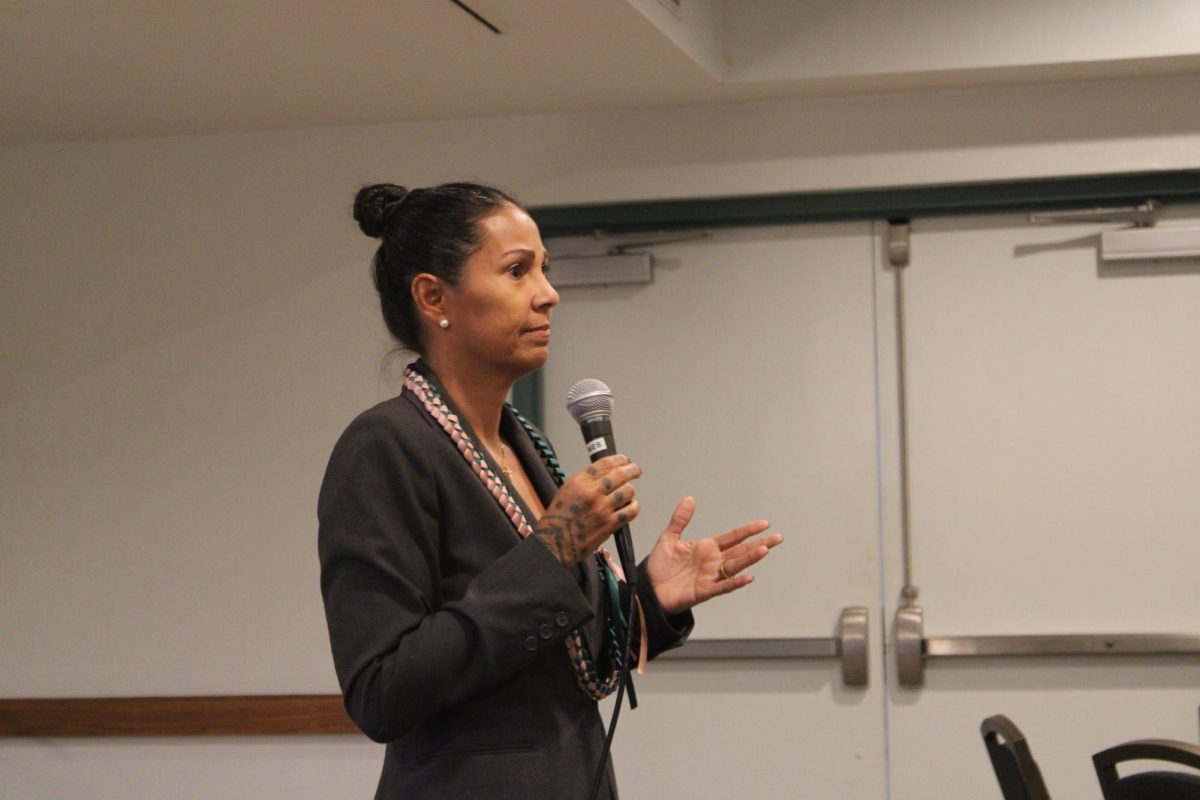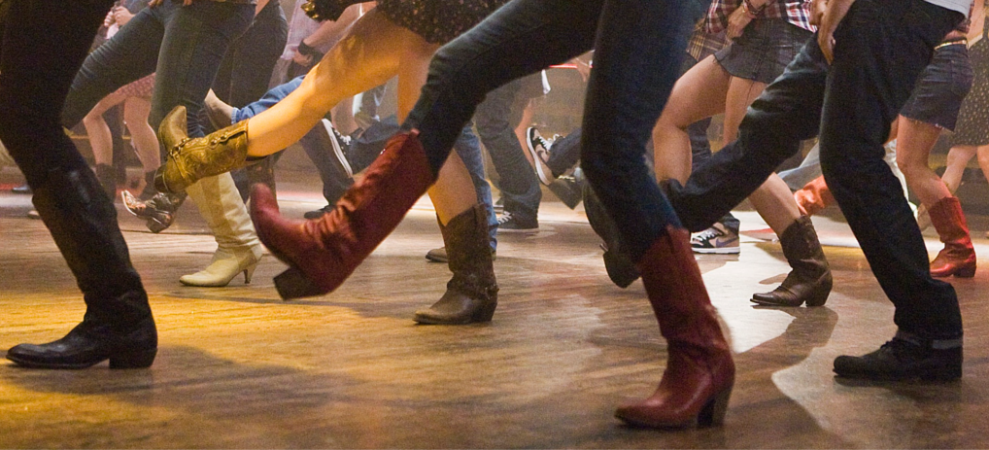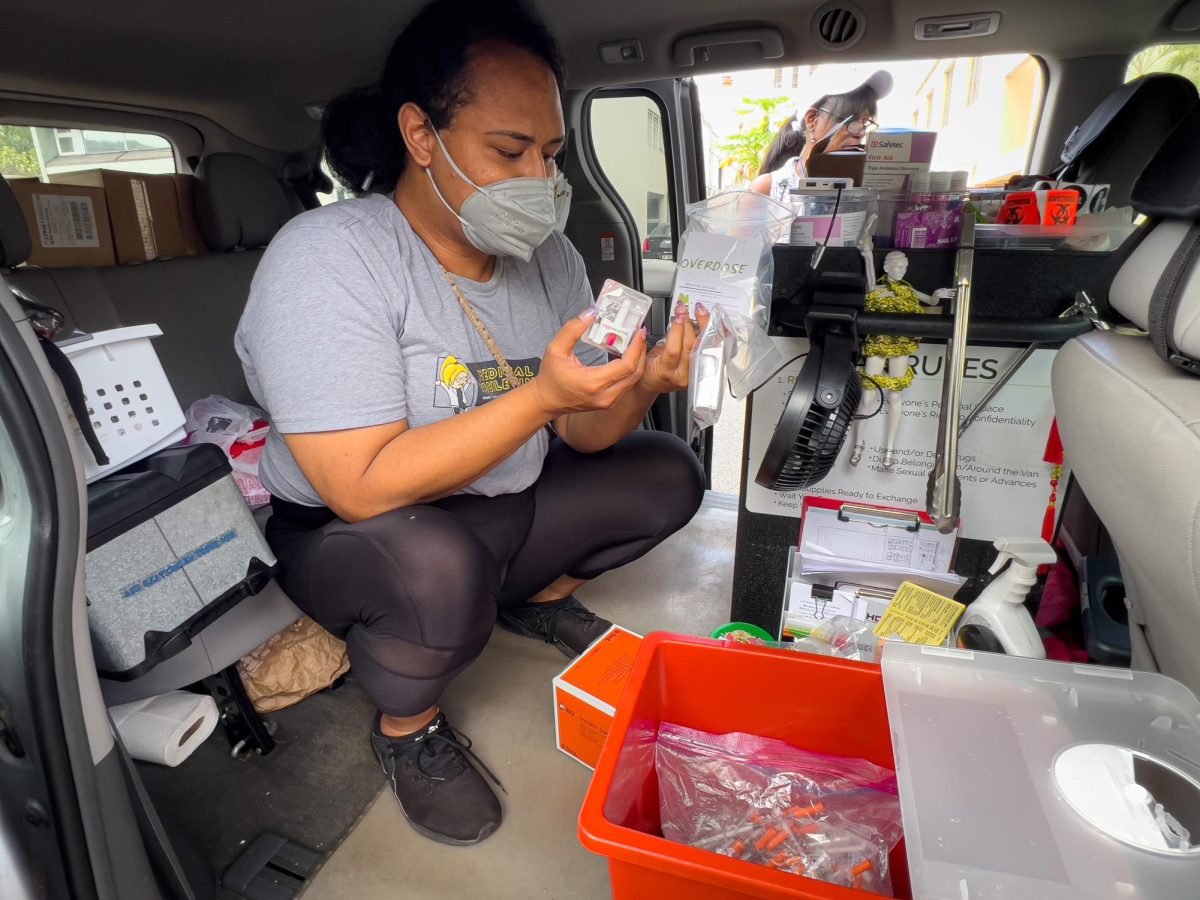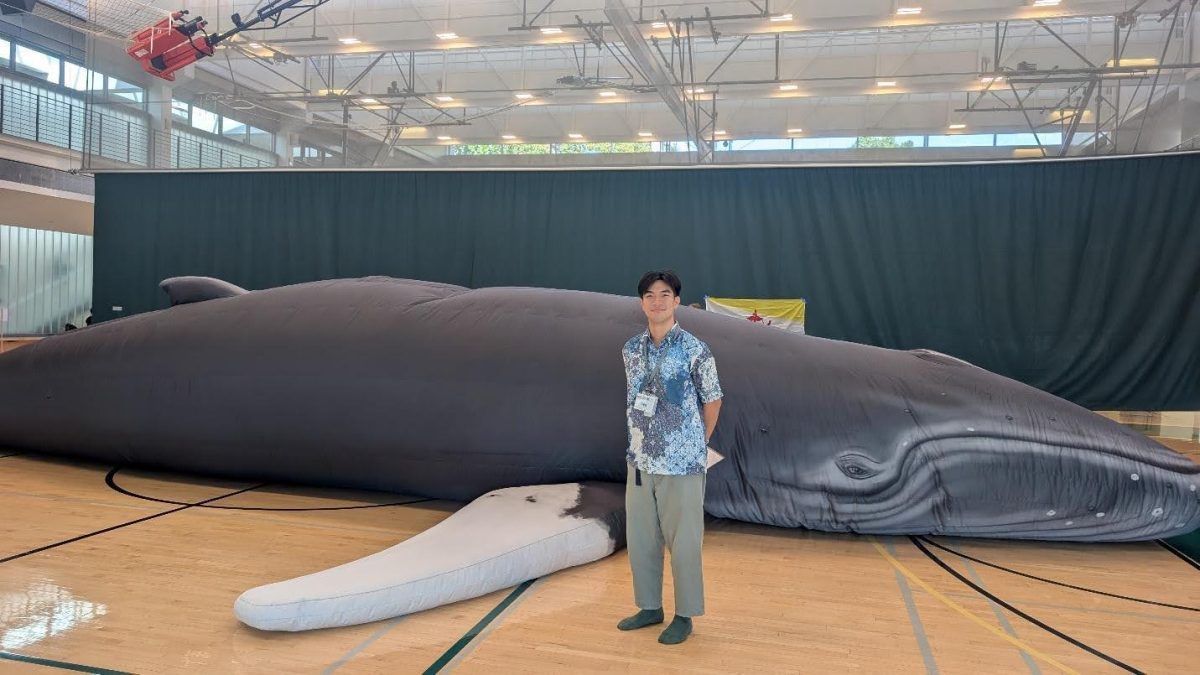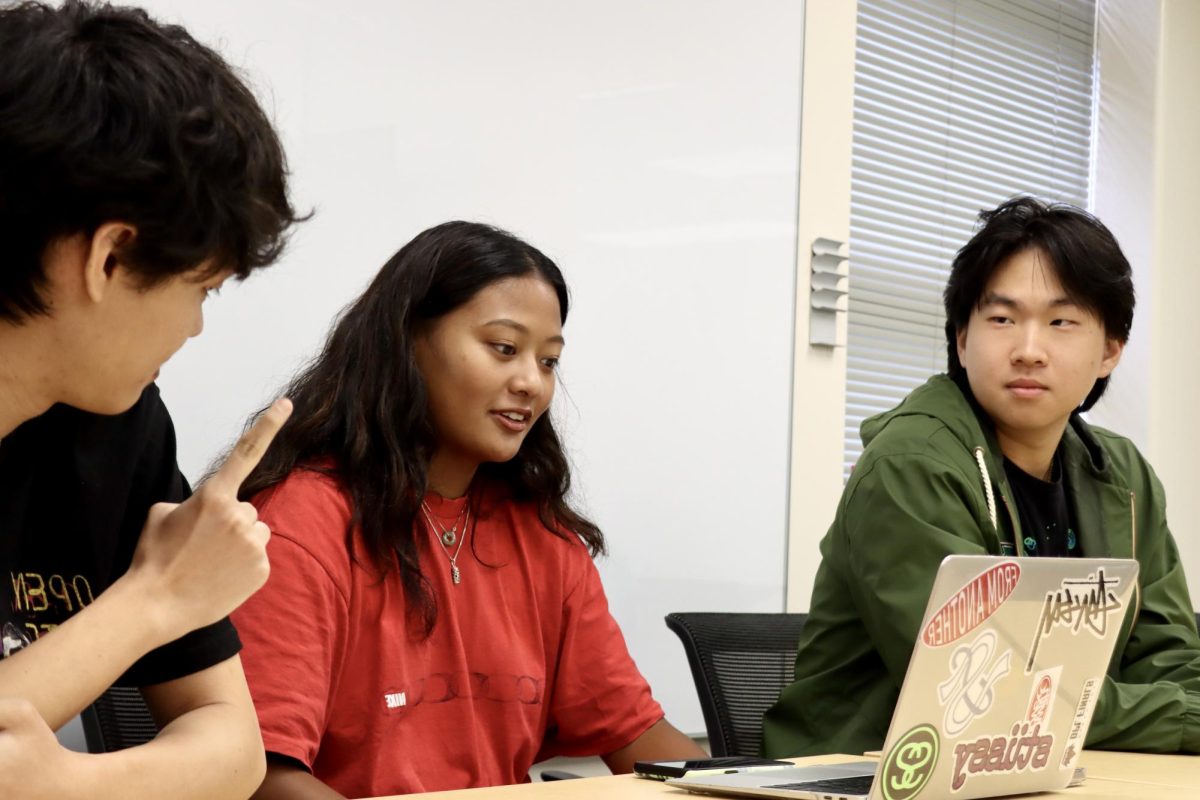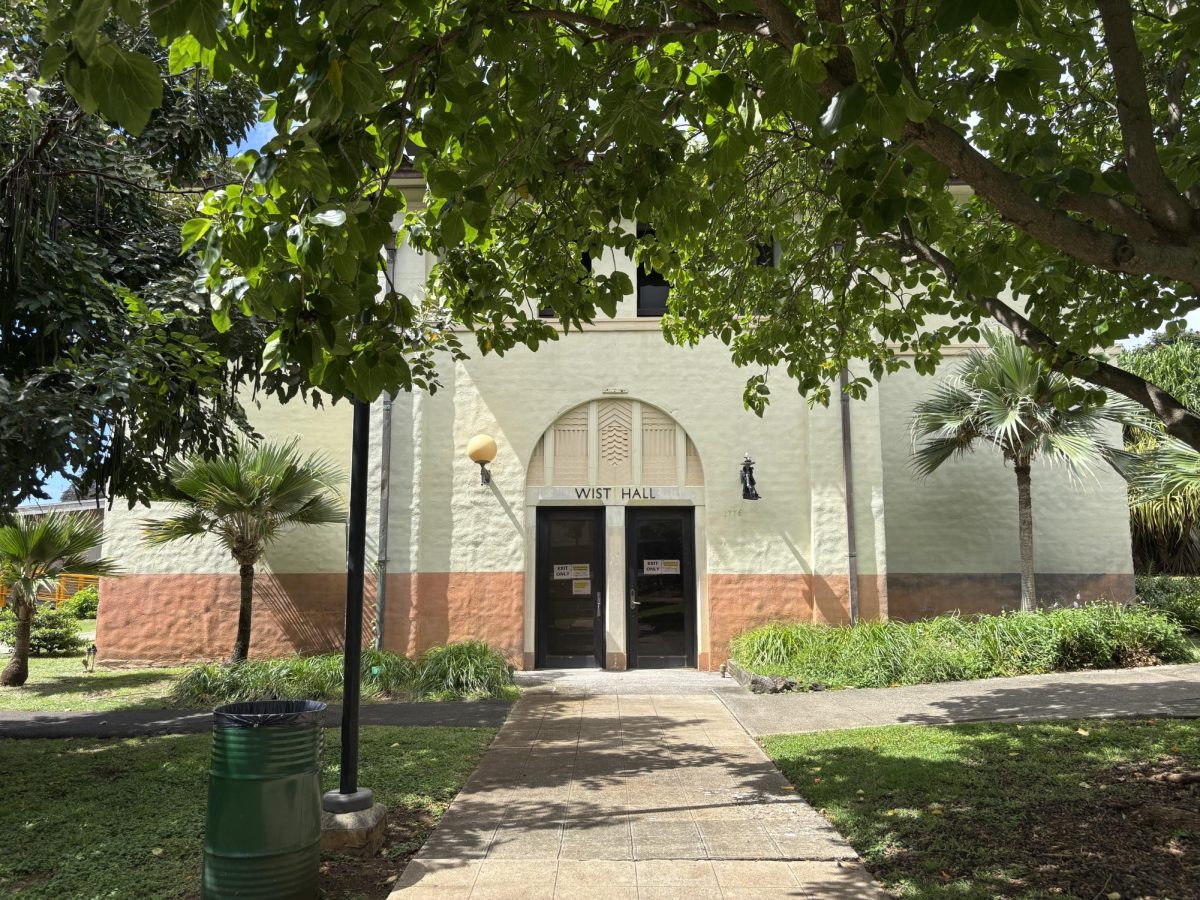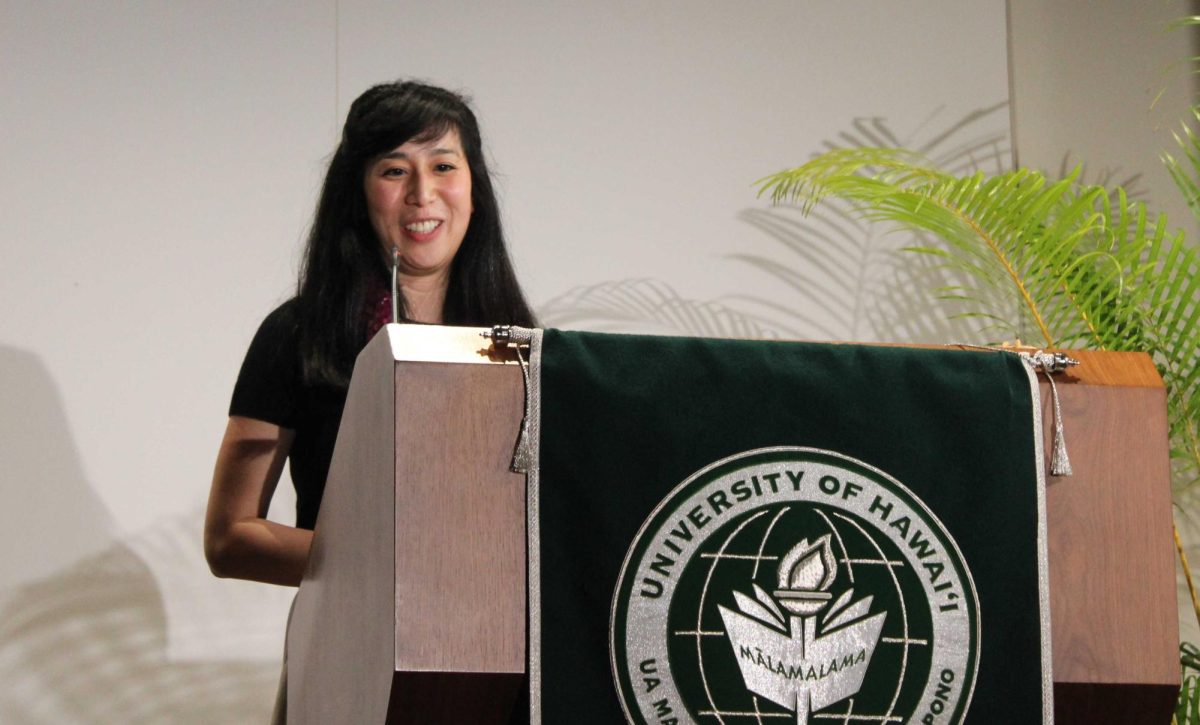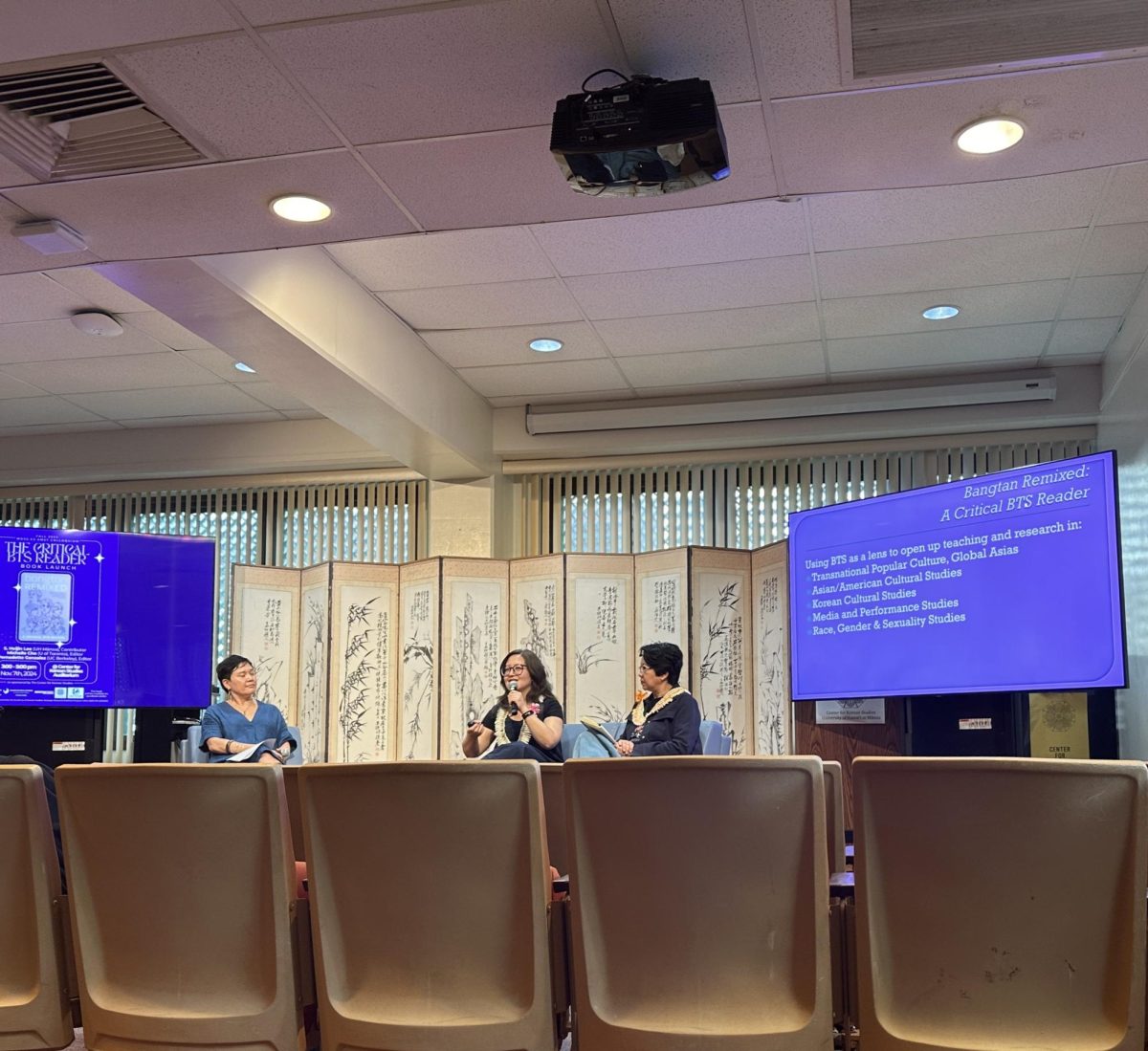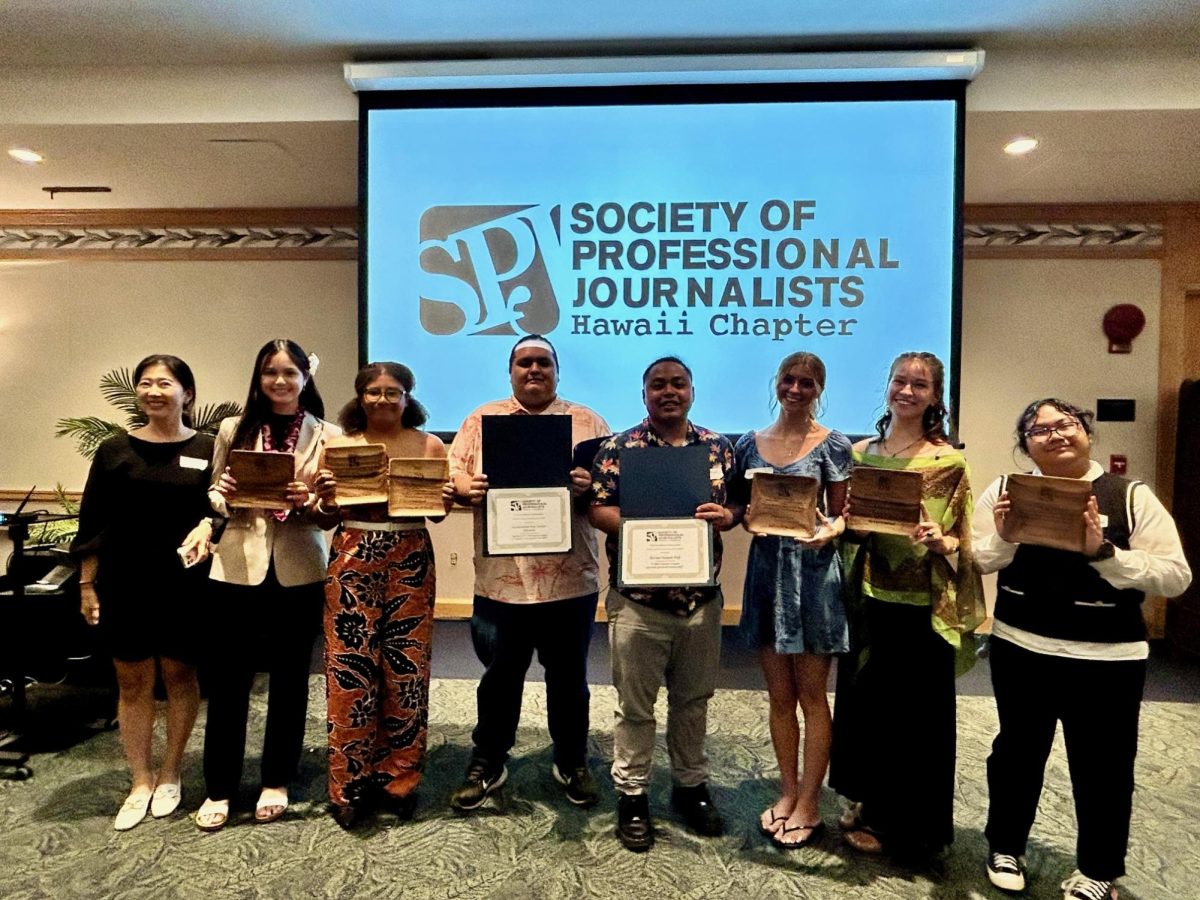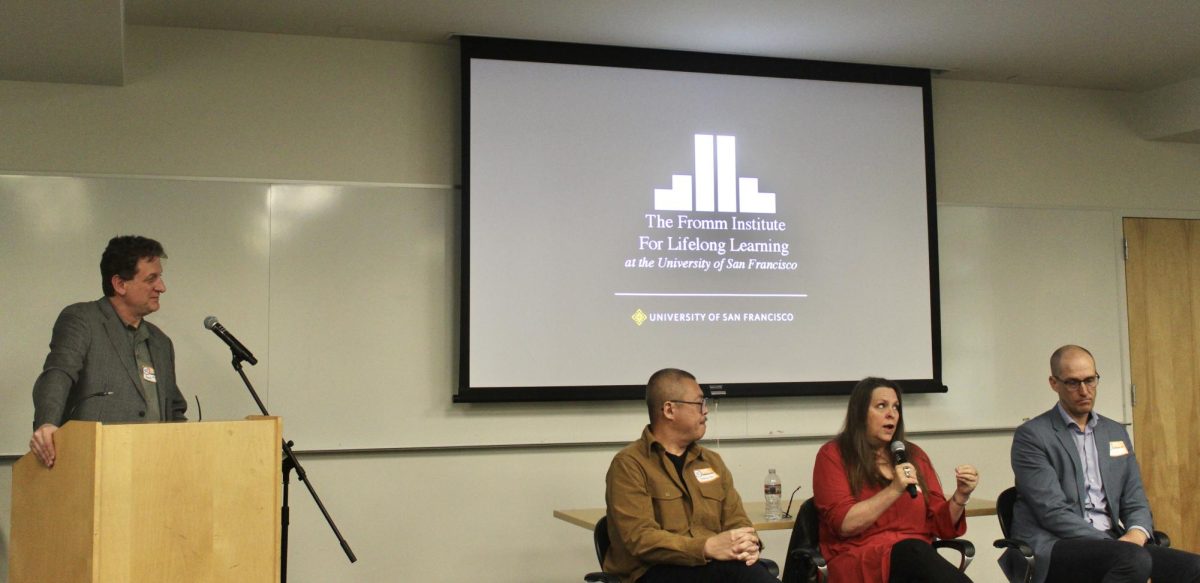Organizers teemed with excitement and nerves as they set up the “Know Your Rights” training for international students on Thursday, Oct. 9, unsure of the potential turnout. A small crowd began to trickle into the room, and the mood became subdued as students anxiously awaited the presentation.
“This training that we’re doing today applies to every single person,” said Nandita Sharma, a UH Mānoa professor and speaker at the event.
Since administrative changes took effect this year, Sharma has heard from students and other faculty who are worried that they may become a target.
It didn’t just include those who may be questioned about their migration status–even those taking part in research which the administration has criticized and defunded, including environmental and cancer research, have voiced concerns according to Sharma.
Budget cuts, visa changes, cancelled scholarships – these are just a few of the subjects that have flooded the emails of university students around the U.S.
One group may have been particularly affected: international students, who made up 6% of the student body at UH Mānoa in 2023, and whose population has only grown since.
What To Know
The “Know Your Rights” training content started with a reminder that we all have rights, regardless of immigration status, under the Federal Constitution, the Hawaii State Constitution, and Hawaii State Law. Notably there was also a disclaimer that “this presentation is information, not legal advice.” Presenters encouraged students seeking legal advice to obtain an immigration lawyer, referencing the Refugee and Immigration Law Clinic of the Richardson School of Law.
Presenters advised not to offer information regarding immigration status for those who are not lawful, permanent residents and for all to avoid carrying fake documents.
Along with basic constitutional rights, Sharma emphasized that “you have a right to record before and while detained.” She advised to be calm and polite while recording, also adding that if a phone is confiscated, Hawaii state law says that pictures, video, audio, and notes must be preserved.
Advice regarding recording applies to witnesses as well. Witnesses are not allowed to interfere with arrests, but they can record and take notes, ask detainees for their name and their lawyer’s information, and advise detainees of their rights.
The presentation outlined the difference between a federal administrative order and a judicial court order signed by a judge. Only the latter of which permits officers to enter one’s residence, which must be done within two weeks of the date the court order was issued. Sharma advised keeping the door closed if one is faced with officers at their door, and requesting the warrant be slid under the door.
Yuko Ida, a second-year Ph.D. student in the department of educational foundations, reviewed ways in which school administrators, professors, TAs, and students can prevent inquiry regarding status or the presence of federal agents by making sure their educational spaces are non-public. Entry by federal agents is permitted in public spaces, which includes outdoor spaces within campus grounds, public events, and spaces where public entry is not limited by devices like ID or key cards. To make a public space private, Ida encouraged signage in offices or classrooms. Signage indicating things like “no public entry” or “authorized personnel only” can work to create a private space, such signs were available at the training.
The presentation ended with a Q&A with Neribel Chardon, Senior Staff Attorney at The Legal Clinic. Chardon mentioned that immigration law is not criminal law, stating the importance of speaking with an immigration attorney rather than a criminal attorney for immigration-related questions.
Chardon answered student questions, which mostly involved a range of topics from visas to recording rights. Chardon emphasized that visa holders should monitor and resolve any possible issues to their status, “if you’re not enrolled or if your visa is expired, you need to contact the student office and be proactive in fixing that.”
How Did We Get Here?
Nandita Sharma is a professor of sociology at UH and an “educational activist,” having authored multiple books on nationalism and migrants. Before the training portion, Sharma began the workshop with a lecture on the history of immigration in the U.S.
According to Sharma, immigration control in the U.S. started with the abolishment of slavery, and indentured workers were the first to undergo immigration enforcement.
“That contract of indenture was the very first immigration papers … the very first immigration officers were created to monitor those contracts,” Sharma said.
1875 brought the first immigration laws in the U.S., and by the end of the world wars, these laws became essentially global.
“As a migration scholar, I study international migration policy,” said Sharma in her presentation. “Migrants have become the quintessential scapegoat for why citizens are not doing as good as they ought to be … what’s bad for migrants is not good for citizens. Let us remember as we move forward that these categories are simply state inventions … These are state categories, and they have enormous consequences on people’s lives.”
In the recent past, many nonimmigrant students have been admitted to the U.S. for their “duration of status,” allowing them to stay in the country for as long as they maintain their status, oftentimes as a student, rather than until a specific date. On August 28, the Department of Homeland Security published a proposed rule to end “duration of status” for students and scholars with F and J status, which includes scholars and dependents.
According to a letter from UH President Wendy Hensel, UH has submitted formal comments opposing this elimination. The letter cited several grievances with the policy change, including international students’ contribution to Hawai’i’s economy, and how “international students enrich the educational environment by bringing diverse perspectives that prepare all students for a globalized world.”
In September, a new Supreme Court Decision allowed Immigration officers to “briefly detain” individuals for “reasonable suspicion, based on specific articulable facts, that the person being questioned … is an alien illegally in the United States.”
“We need to mention,” Sharma said, “that the only reason anyone would be presumed not to be a citizen … is largely based on the color of their skin, or what language they speak, or what job they’re doing. That’s very worrying that that is legal practice in the United States.”
On campus, Sharma wasn’t the only one who has seen increasing concerns. The International Student Services office provided comments regarding the attitudes of international students.
“Recent administrative and political changes have created a climate of anxiety among international students, fundamentally altering their interactions with the ISS office,” wrote Karen Mikel, ISS Director, in an email. Mikel elaborated, stating that student inquiries in advising sessions and other channels have shifted “from basic ‘How-To’ questions to ‘is it safe?’ concerns.” She added that students are concerned about “minor errors,” in things like travel signatures or online course limits could jeopardize their status.
“Despite the pressure this places on advisors,” Mikel wrote, “the ISS office strongly encourages all students to reach out immediately with any status, visa, or travel question to ensure they receive the most accurate, up-to-date guidance and maintain compliance.”
Future Events
The Graduate Student Organization plans to hold similar training sessions in the future. Information about related events can be found on the ISS website or the Graduate Student Organization Instagram @gsomanoa.


